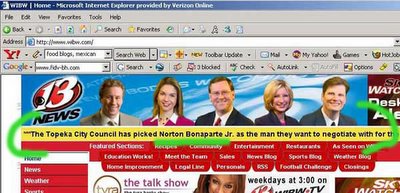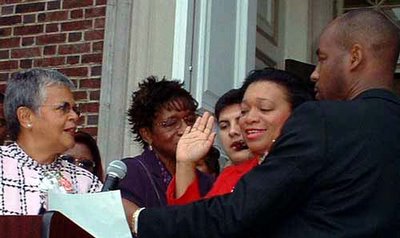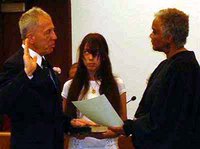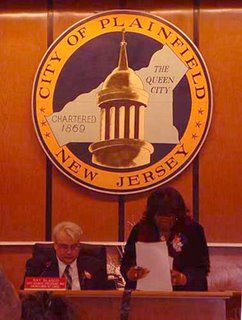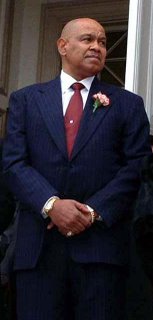Veteran Cops and a New Gizmo May Fight Crime
 Make way for the Segway.
Make way for the Segway.The two-wheeled device may become part of an anti-crime strategy for the central business district, if the City Council and the Urban Enterprise Zone Authority endorse use of $276,143 in sales tax funds for four police officers and the unique “Human Transporter” that would place a standing officer eight inches off the ground. Besides giving higher visibility, the Segway is “the ultimate icebreaker,” according to company advertising, because everyone who sees one wants to converse with the operator.
 The Segway can go about 3 miles per hour, two or three times walking speed, and can sprint at 12.5 miles per hour if necessary. It uses gyroscopes and tilt sensors to allow the user to direct it by body movement. The $5,500 police model would allow speedy coverage of a downtown beat, its makers say.
The Segway can go about 3 miles per hour, two or three times walking speed, and can sprint at 12.5 miles per hour if necessary. It uses gyroscopes and tilt sensors to allow the user to direct it by body movement. The $5,500 police model would allow speedy coverage of a downtown beat, its makers say.The city would have to come up with a 20 percent match for the program, which includes four “seasoned” officers who would stay exclusively in the business district. The total program cost would be $338,304.
The council agreed to approve the submission to the state authority that administers funds accumulated in each Urban Enterprise Zone account.
A formal vote will take place at the regular City Council meeting on Feb. 6, 2006, 8 p.m. in Municipal Court, 325 Watchung Ave.
The money comes from a reduced sales tax that certified retailers are allowed to charge and the authority must sign off on each proposed project. The authority meets next on March 8.
The city has 700 businesses in its Urban Enterprise Zone and 100 participate in the sales tax program, according to the proposal. The program’s effectiveness would be measured in terms of reducing the current crime rate.
According to city police, crime figures in the Urban Enterprise Zone in 2005 included nine homicides, seven rapes by force, 141 robberies, 84 aggravated assaults, 141 burglaries, 368 thefts, 113 motor vehicle thefts, six incidents of arson, 192 weapons possession reports, 192 narcotics reports, 6o disorderly conduct incidents and 47 instances of driving while intoxicated.
The City Council made no mention of the crime statistics or the Segway in its discussion Monday (Jan. 30, 2006), but said the increased police presence in the business district would increase the perception of safety and might draw more shoppers.
--Bernice Paglia
KEYWORDS: budget, police
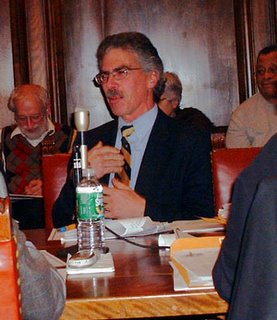








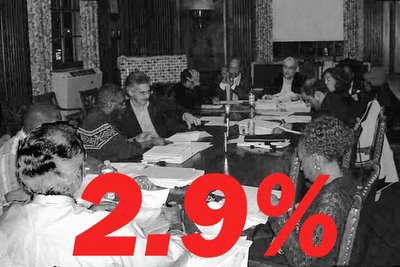

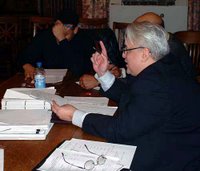







 OPINION: Graffiti at prominent locations should not be allowed to stand for any length of time. Tags that identify gangs should be erased as soon as they appear. It seems to me the longer a gang name is permitted to remain visible, the more power gangs can claim over the immediate area and the real estate on which it appears.
OPINION: Graffiti at prominent locations should not be allowed to stand for any length of time. Tags that identify gangs should be erased as soon as they appear. It seems to me the longer a gang name is permitted to remain visible, the more power gangs can claim over the immediate area and the real estate on which it appears.